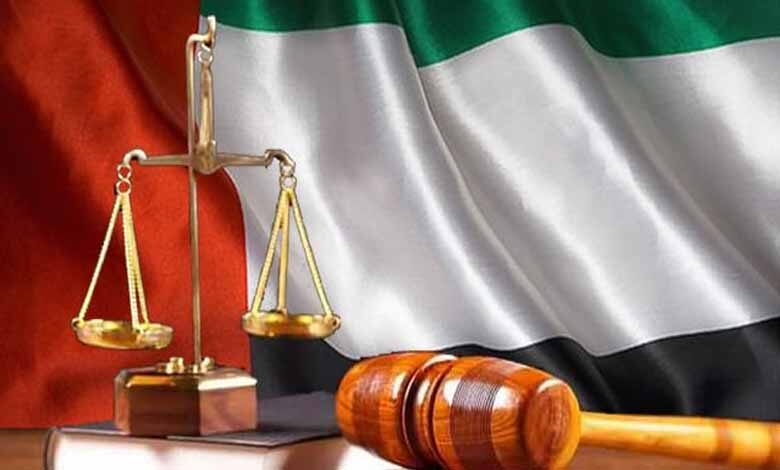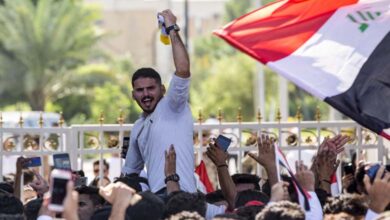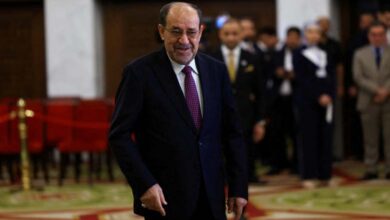UAE National Human Rights Authority: A Noble Vision Culminating the Golden Jubilee

The establishment of a national human rights body was the culmination of the UAE’s pioneering efforts to achieve sustainability in advancing human rights conditions.
Efforts that are consistent with the moral and humanitarian frameworks that characterize the United Arab Emirates as a beacon of humanity, a beacon of tolerance and a country of security and safety that preserves human dignity and promotes its values and principles throughout the world.
On Monday, UAE President Sheikh Khalifa ben Zayed Al Nahyane issued Federal Law No. 12 of 2012 on the National Human Rights Commission.
The promulgation of the law coincides with the golden jubilee of the founding of the United Arab Emirates in 1971. It confirms the policy of respecting human rights, which the State has pursued since its establishment and which is considered an essential part of the principles and values that are firmly rooted in Emirati society.
At the same time, it establishes its goal of sustaining and promoting human rights in the UAE in the next 50 years.
The establishment of the Commission is part of the vision of the United Arab Emirates, which regards human beings as the real and lasting wealth of the country and its most precious resources, which must be developed on a continuous basis. It has therefore endeavored to guarantee their rights and freedoms and has drafted numerous constitutional laws to guarantee their civil and political rights. It has also worked to incorporate the principles of human rights enshrined in the Charter of the United Nations and the Universal Declaration of Human Rights into its Constitution and laws.
Law on the Establishment of the Authority
Federal Law No. 12 of 2012 establishes an independent body called the National Human Rights Commission, which is headquartered in Abu Dhabi, and may open branches and establish offices in the other Emirates.
The body shall have an independent legal personality and shall have financial and administrative independence in the exercise of its functions, activities and competencies.
The Commission shall have a Board of Trustees of not less than 11 members, including the Chairman, but not less than half the members.
The selection process for members of the Commission shall be determined by a decision by the President of the United Arab Emirates. They shall be selected from advisory, academic, civil society organizations and individuals with technical and professional expertise in their personal capacity, taking into account the appropriate representation of women. The term of the Council shall be four years, renewable once.
Functions of the Authority
The Authority aims to promote and protect human rights and freedoms in accordance with the provisions of the Constitution, the laws and legislation in force in the United Arab Emirates and the relevant international covenants and conventions.
The terms of reference and functions of the Commission include but are not limited to: To participate with the competent authorities and authorities in the elaboration of a national plan of action for the promotion and protection of human rights in the State, to propose a mechanism for its implementation, to promote a culture of human rights and to raise the awareness of members of society therein, including holding seminars, conferences and panel discussions on human rights, to submit proposals, recommendations and advice to the competent authorities and authorities on everything that would protect or promote human rights and their follow-up, to submit proposals to the competent authorities on the adequacy of legislation and laws for international human rights instruments, covenants and conventions to which the State is a party and to follow them up, as well as to monitor, verify and report any violations or violations of a human rights right to the competent authorities, as well as to participate in international and regional human rights forums.
Many Goals
The establishment of the Commission is in accordance with the Paris Principles, where national human rights institutions established under the Paris Principles are official bodies established by States with a legal mandate to promote and protect human rights.
They are financially and administratively independent in the exercise of their functions, activities and competencies and are guided by the spirit of the 1993 Paris Principles for National Human Rights Institutions.
The establishment of this important mechanism is part of the UAE’s keenness to strengthen and develop its human rights institutional structure in order to strengthen the State’s position and to highlight its role in the field of human rights at the international level.
In preparing the draft law on the establishment of the Authority, the State had been keen to learn about the best international practices and experiences of States that had established similar bodies.
The State has also taken care to seek the opinion and advice of a number of international and international experts, the most important of which is cooperation with the Office of the High Commissioner for Human Rights, which has provided technical assistance and legal advice on the draft law, whose articles are in line with the Paris Principles for National Human Rights Institutions.
In the next 50 years
The issuance of the law coincides with the golden jubilee of the founding of the United Arab Emirates in 1971 and confirms the policy of respecting human rights that the state has pursued since its establishment.
At the same time, it establishes its goal of sustaining and promoting human rights in the UAE in the next 50 years, as the UAE Percentage 2017 seeks to be the best, most advanced country in the world.
Since its establishment, the United Arab Emirates has accorded high priority to the values of respect for human rights, based on its cultural heritage, its Constitution, which guarantees civil liberties for all, and its legislative system, which promotes the principles of justice, equality and tolerance, respect for rights, and support for humanitarian and relief work in line with the principles of the Universal Declaration of Human Rights.
Those efforts culminated in the establishment of the National Human Rights Commission, which was preceded by the creation of a Ministry for Tolerance and Coexistence, and the development of policies and laws to protect the rights of workers, children, women, senior citizens, people of determination and prisoners, as well as contribute at the regional and international levels to the fight against human trafficking.












